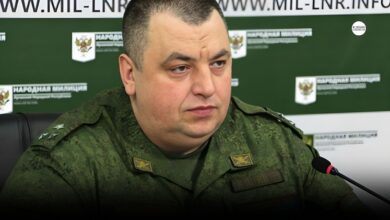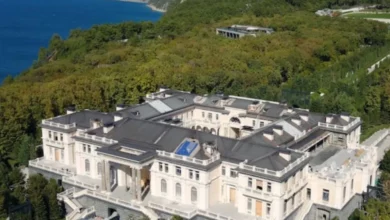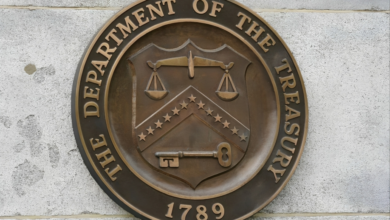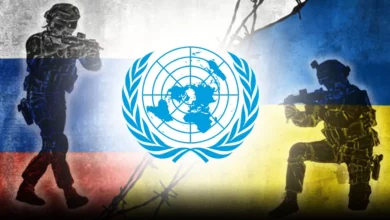Mercenary leader death sparks hope for new leads in 3 Russian journalist murders
Russian Journalist Murder Cases Reopened After Mercenary Leader's Demise
Mercenary leader death in August 2023 of Yevgeny Prigozhin, the founder of Wagner Group, a Russian private military organization, attracted international attention. There was conjecture around this episode regarding the involvement of President Vladimir Putin. However, this episode might mark a turning point in the ongoing pursuit of justice for the three Russian journalists who died in 2018 while looking into Wagner’s actions in the Central African Republic, according to those who are concerned about press freedom.
The death in August 2023 of Yevgeny Prigozhin, the founder of Wagner Group, a Russian private military organization, attracted international notice. There was conjecture around this episode regarding the involvement of President Vladimir Putin. However, this episode might mark a turning point in the ongoing pursuit of justice for the three Russian journalists who died in 2018 while looking into Wagner’s actions in the Central African Republic, according to those who are concerned about press freedom.
“The Dossier Center, a nonprofit organization in London well-known for its inquiries into the killings of Orkhan, Kirill, and Aleksandr, has received an abundance of tips after Prigozhin’s passing. Out of concern for their safety, an organization representative spoke to CPJ anonymously, but they have been actively following up on every lead. The spokesman revealed that they have had approaches from people who were once Wagner mercenaries as well as other people, some of whom are looking for cash support or assistance in getting visas in exchange for useful information. The official stressed that no more remarks could be made at this time because the center is now thoroughly reviewing every lead.”
Whether or not these leads turn out to be useful, the families and friends of the journalists are feeling hopeful only by virtue of the idea of new information in the investigation that has stalled. They hope that these possible breakthroughs could force Russian and CAR officials to step up their purported investigations into the mysterious killings of the journalists or even start an unbiased outside investigation.
The final reporting trip
The three Russian journalists likely had no idea how dangerous their arrival would be when they arrived in the Central African Republic on July 28, 2018, to investigate Wagner’s actions. Of the three, Dzhemal—a well-known war correspondent—had the most experience, having reported from Syria, Afghanistan, Libya, and areas of Ukraine under Russian occupation. Rastorguyev concentrated on action within Russia, but Radchenko also covered developments in Syria.
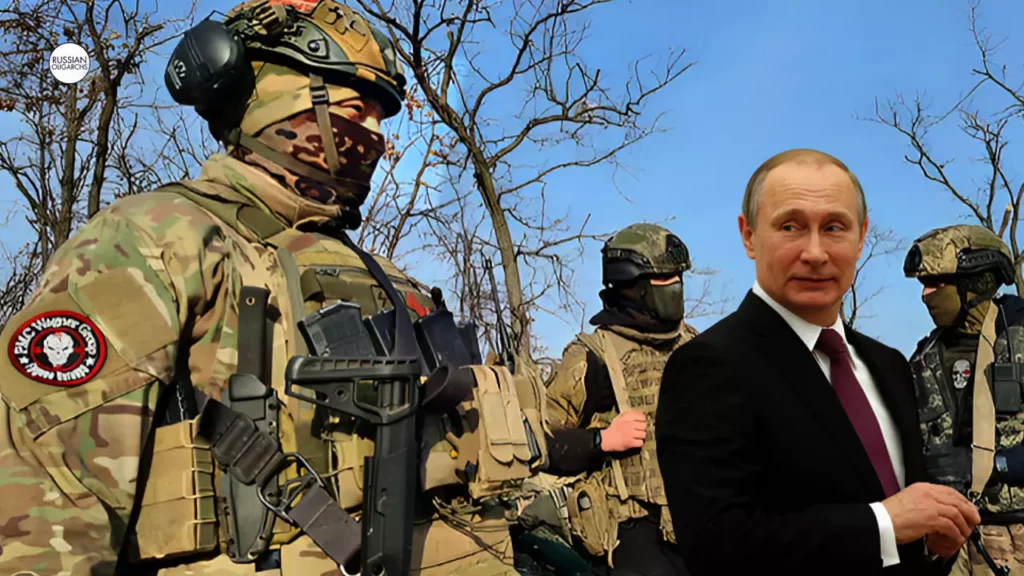
The three were excited about exploring Wagner’s activities to learn more about Russia’s growing influence in Africa. Even though Prigozhin’s connections to Wagner had been extensively reported in the media, the well-known businessman had not yet publicly recognized his part in the company’s founding at this time. The journalists were especially interested in the trip because of Prigozhin’s tight relationship with Putin. He was known by many as “Putin’s chef” because the Kremlin favored his catering company, which operated under American sanctions.
The journalists sent their idea to Mikhail Khodorkovsky, a former Russian dissident magnate and Putin critic, who funds The Investigations Management Centre (TsUR), a Russian investigative organization. TsUR consented to fund the project financially. Khodorkovsky also extended financial support to the Dossier Center, the team in charge of looking into the killings.
According to the BBC, the three journalists had only been on the ground for three days when they visited a former Berengo mansion that had served as a military station for training Russian soldiers. In addition, they were going to Bambari to meet with a local contact. On July 30, they were shot and killed by unknown assailants when they were traveling north of the town of Sibut. A Dossier Center spokesperson claimed that one journalist had been severely beaten and maybe tortured, while another had been shot three times in the heart, raising suspicions of a professional assassination.
Khodorkovsky vowed to find the murderers after they were killed. On Facebook, he declared that he will use every effort to find those who were behind it, stressing that making sure the victims’ Mercenary leader deaths had a purpose is the most significant way to pay tribute to their memories. He is committed to seeing the inquiry through to the end in order to identify the person(s) who killed them as well as the motive(s). This month, a Dossier Center spokesperson told CPJ that Khodorkovsky is committed to honoring his word.
Investigations stalled
Over five years later, there is no ongoing investigation by either CAR or Russian authorities, as confirmed by Roman Radchenko, the brother of Radchenko. Roman Radchenko and his father, Aleksandr Radchenko, have been in contact with various Russian authorities, including the Russian Foreign Ministry, the Russian ambassador to CAR, and the Investigative Committee, which is Russia’s primary law enforcement agency responsible for investigations. However, he has mentioned that these authorities ceased responding to his calls and letters more than a year ago.

Following the murder, CAR authorities stated that the journalists were killed in a robbery by nearly a dozen Arabic-speaking individuals wearing turbans. This narrative was swiftly adopted by Russian officials, but Radchenko, the Dossier Center, and experts on Africa have all raised doubts about this account. These skeptics have pointed out that the location where the journalists were killed is far from areas under the control of the Arabic-speaking Seleka Muslim militia.
Russia has been informed by CAR authorities that there has been no “significant development or advancement in the investigation,” as Russian Ambassador to CAR Aleksandr Bikantov indicated in an interview published by the Russian state news agency RIA Novosti in July 2023.
Through email and online portals, CPJ has communicated with the government and ministry of justice in the CAR, but it has not gotten a response. Furthermore, CPJ tried calling the Russian Investigative Committee but received no response.
“I’ve been so disappointed that I had to file multiple complaints with [Russian] courts about the lack of proper investigation by the Investigative Committee,” Roman Radchenko told CPJ on the phone from Moscow. “I am not that naïve to believe that the courts will take my side, I just know of no other way to get some updates [from the Investigative Committee].”
The Radchenkos are resolute in their commitment to ensure that those who are accountable for the journalists’ killings are held accountable. They have engaged in conversations with numerous individuals connected to the inquiry and provided their discoveries, including the Dossier Center’s investigation, to the Investigative Committee. However, they expressed frustration that the authorities did not pursue further action.
What we know about the killings
“The murder appears to have been a preemptive action, according to the Dossier Center representative, as the journalists had not dedicated sufficient time to uncover any information about Prigozhin or Wagner. The center’s investigation, released on the first anniversary of the 2019 killing, along with subsequent reports, indicate that the journalists were targeted even before they arrived in the Central African Republic.
“The preparations to eliminate them began immediately after the three journalists applied for and received their visas,” stated the Dossier Center representative. They also examined metadata from the journalists’ phones and information from local phone companies, revealing evidence that the three had been under surveillance from the moment they set foot in the country.”
The inquiry, which involved on-site work in the Central African Republic (CAR), also revealed that the journalists’ movements were subject to control and surveillance by an elusive intermediary who exclusively communicated with them via text messages. The research center discovered that the surviving driver of the trio had exchanged messages with a local official at the time of the murders.
This official, in turn, was part of a communication chain that included a local leader associated with the Wagner Group and an advisor appointed by Russia to CAR’s president. Radchenko attempted to persuade the Russian Investigative Committee to question the Russians the driver had been in contact with, but the committee failed to take action. One of his numerous lawsuits alleges that the committee has displayed negligence in its investigative efforts.
Other factors have hindered the progress of investigations. When CNN reporters traveled to the Central African Republic in 2019 to probe the killings, they were monitored and falsely labeled as CIA agents by Russian operatives associated with a now-defunct news outlet allegedly financed by Prigozhin, with the intent of tarnishing Russia’s image.
The individual who served as a crucial Russian witness responsible for organizing the journalists’ journey passed away in January 2023. Furthermore, another significant witness from the Central African Republic, whose identity Roman Radchenko couldn’t disclose due to a non-disclosure agreement imposed by the Investigative Committee, vanished two years ago. Even the journalists’ attire met its end in CAR, having been incinerated.
Theories abound
The journalists’ family and friends have varying opinions on the party responsible for the killings. Roman Radchenko holds Prigozhin accountable, asserting that “the individuals, particularly Orkhan [Dzhemal], began uncovering information about Wagner in Syria and Donbass [eastern Ukraine], where Wagner had already conducted operations.”
Nadezhda Kevorkova, an independent journalist and a friend of Dzhemal, believes that Prigozhin did not gain any advantage from the journalists’ Mercenary leader deaths. She argues that the extensive international media coverage of the incident brought unwelcome scrutiny to Wagner’s activities in the Central African Republic.
“Also, many people in the CAR were not unhappy about the activities of Wagner. There’s certain fatigue from France [as a former colonial power], and nobody else seemed to be interested in the country. When Russians came, many saw it as a new opportunity,” she told CPJ.
She said she believes the order to kill Dzhemal and the two other journalists “came from the highest office” in Russia.
CPJ called the Kremlin’s press service about this allegation but nobody picked up the phone.
Everyone interviewed by CPJ concurs that the Russian authorities’ official explanation for the incidents – claiming that the murders resulted from a robbery – is inaccurate. The representative from the Dossier Center and Kevorkova both highlighted the fact that the journalists’ money remained untouched, and the fuel, which is typically a prime target for robbers in the area, was left in the vehicle.
According to the Dossier Center’s report, post-mortem examinations indicated that the killings were “intentional and carried out with a high level of professionalism” and could not be attributed to a simple attempt to seize the victims’ possessions.
In 2018, Lobaye Invest, a company purportedly owned by Prigohzin, covered the expenses for transporting the bodies of three journalists to Moscow, as reported by the BBC. In 2021, Prigozhin expressed his intention to write to the CAR Culture Ministry about erecting a monument dedicated to the friendship between Russia and CAR at the location where the three journalists lost their lives.
Chance of an investigation
Calls to investigate the killings have been met with delays over the years.
The Dossier Center’s spokesperson mentioned that their attempts to reach out to the United Nations Multidimensional Integrated Stabilization Mission in the Central African Republic (MINUSCA), a U.N. peacekeeping mission, have gone unanswered on multiple occasions.
Efforts made by a group of U.S. senators to prompt the U.N. to look into the killings have also proven to be largely unproductive. The office of Republican Senator Marco Rubio informed CPJ that there had been no further developments since a letter from U.N. Secretary General António Guterres in 2020, in which he stated that MINUSCA was offering “full support” for the Central African Republic investigation that was supposedly ongoing at the time.
CPJ’s request for comment sent through the mission’s website remained unanswered by MINUSCA.
The representative from the Dossier Center is of the opinion that Russia is unlikely to conclude an investigation, much like what has occurred with many other political killings. They suggest that international organizations should step in, and a different jurisdiction should take over.
“No investigation is ongoing. Neither Russia nor CAR are interested in conducting an investigation and finding the truth,” the Dossier Center representative said
“We are confident that the investigation will be stalled and never completed in Russia. We are ready to collaborate with other parties interested in uncovering the truth, we’re ready to share our findings with them,” the Dossier Center’s representative told CPJ.
“The most important thing is that the families know who killed their loved ones and that they are punished. Despite the pain that will never end, justice will give them some solace.”
ALSO READ :
- 3 Russians Arrested in NYC Caught Selling Weapon Components to Moscow
- Swiss Parliamentary Panel Demands Swift Expulsions of Russian Spies
- Russian Private Military Company Makes a Play for Wagner Fighters
- 3 Russian Oligarchs Sanctions Appeals Rejected by EU Court
- Virgin Media O2’s Purchase of a Broadband Firm Linked to Russian Oligarchs




